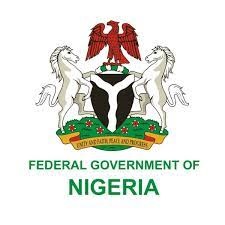Despite the huge investment, interventions and technical support by the Federal Government, basic education sub-sector is still bedeviled with the unpleasant occurrences of learners sitting on bare floors, high rate of drop-outs, increased number of out-of-school children, poor infrastructure, dilapidated classroom buildings and inadequate learning facilities.
Describing it as disheartening, the Hon Minister of State for Education, Yusuf Sununu, who lamented at 24th quarterly meeting of UBEC Management with the Executive Chairmen of SUBEBs, on Tuesday, in Abuja, said the negative occurrences includes unqualified teachers, inadequate monitoring, inequitable access and low learning outcomes which has resulted to the falling standard of education in the country.
With the theme of the meeting: “Redefining National and State Priorities for Effective Basic Education Delivery” Hon Sununu said, is apt and in line with the Renewed Hope Agenda of the present administration, adding that Education is pivotal to every country’s development.
Hence, he said, Qualitative as well as functional education system prepares the citizenry for global dynamics, responsible citizenship and national development.
In his words:”Basic education is the foundation upon which other levels of education are built and a necessary requirement for personal and national progress.
“Basic education also provides the panacea for growth and development of intellectual capacity as well as shape the morals, values, attitudes and comportment of our young children.
He pointed that the Federal Ministry of Education has not rested on its oars in overseeing the Basic Education subsector just like UBEC has continued to champion its implementation in the country.
He explained that the Federal Government in acknowledging the importance of this foundational level of education established Universal Basic Education Commission to enable it channel funds for implementation of universal free basic education programme in 36 states and FCT.
Some of the provisions by the Federal Government , he said,include: Matching Grants, Teachers Professional Development and Instructional Materials amongst others. The Federal Government has also intervened through several World Bank assisted programmes in order to improve learning at this critical level.
“We cannot continue to sit on the fence and allow our educational system to continue to deteriorate, we must take the bull by the horn and delete the name of Nigeria among the “Learning Poverty” countries”
“As Chairmen of SUBEBs, implementation of Basic Education lies solely in your hands and you must review the current state of Basic Education in your various states by conducting needs assessment of all schools in your domain with a renewed determination to justify the Federal Government’s huge investment in your respective states” he said.
There is the need for the provision of more school infrastructure, adequate learning materials, employment of more qualified teachers, motivation for the teachers and ensure all your schools are constantly monitored. The aforementioned would increase equitable access for all children in your state, improve literacy outcomes and strengthen your educational system.
The SUBEB Chairmen must also ensure that every child in their respective state benefit from the free, universal and compulsory basic education regardless of sex, ethnic or religious backgrounds, language or status as this will reduce the incidence of out- of-school children syndrome.
” I charge you to eliminate every form of school charges so that learners from indigent homes can also access basic education and contribute their quota to nation building.
He however,encouraged all participants to brainstorm and come up with actionable plans and strategies that would move the basic education sub-sector forward for the overall benefit of the country.
Earlier, in his keynote address, the Executive Secretary, Universal Basic Education Commission ( UBEC) Dr. Hamid Bobboyi, said, as part of it’s continuous effort to address the Out-of School Children phenomenon, UBEC, in partnership with UNICEF, held a
National Conference on Out-Of-School Children phenomenon in 2022, the outcome of which was the development of a National Framework of Action for Addressing the Out-Of-School children phenomenon.
Bobboyi said the Conference was followed by a validation and finalization meeting on the National Framework of Action, held in April 2023, and regional stakeholder sensitization meetings held between July and August 2023, as part of the efforts to ensure that States take full ownership of the implementation process. The States and FCT are currently in the process of preparing their Action Plans on Out-of-School Children for implementation.
Adding that the Commission also organized other meetings aimed at addressing critical issues in basic education. Among these were the National Conference on Teacher Professional Development which sought new and effective approaches to teacher capacity building, the National Stakeholder Meeting on Moral Re- orientation and Re-generation in Basic Education, aimed at finding ways of arresting the growing incidents of immorality among young children.
In his words:”UBEC is collaborating with relevant partners to achieve its mandate by doubling its efforts to create public awareness on the dangers of having large numbers of children out-of-school and providing platforms, structures and interventions through which the stakeholders at the State and grassroots levels will leverage.
“The Commission also organized other meetings aimed at addressing critical issues in basic education. Among these were the National Conference on Teacher Professional Development which sought new and effective approaches to teacher capacity building, the National Stakeholder Meeting on Moral Re- orientation and Re-generation in Basic Education, aimed at finding ways of arresting the growing incidents of immorality among young children.
“I am glad to inform you that follow-up actions to the recommendations made from these meetings are already being implemented
While there are achievements in basic education worth celebrating, Bobboyi said, “there are, nevertheless, other daunting challenges that should draw our urgent attention. One of these is the challenge of learning poverty at basic education level. Studies have shown that learners are graduating from primary school unable to read and write. Learning poverty is a function of many factors. Prominent among these are the quality of school governance, teacher quality, availability of essential teaching and learning materials, and the learning environment”
He stressed that “these challenge must be addressed with the urgency that it deserves otherwise our educational system will be turning out dysfunctional citizens who are neither useful to themselves nor to their communities”
The Executive Secretary emphasised the need for Nigeria to invest in digital technology-aided education. This , he said,is the sure path towards producing globally competitive citizens.
“The UBEC Smart Schools are no more than models that States are expected to replicate; therefore, a phased equipping of existing schools with IT infrastructure and training of teachers should be adopted as a strategy for transforming the existing schools to smart Schools.
He assured that the Commission will continue to support the States and FCT in this endeavour, especially in the areas of e-content development and training The Digital Resource Centre and the Zonal Model Smart Schools were set up for these purposes.























